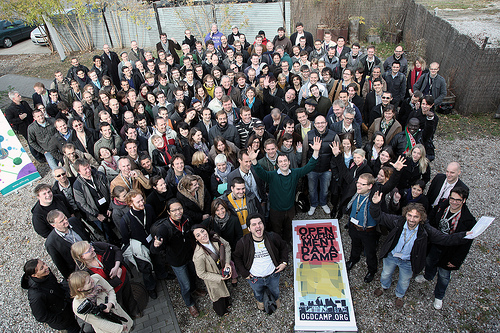This is my attempt to articulate what seems like a contradiction in our modern attitudes to the production and consumption of physical versus digital goods. It’s not new, but I often find it lurking the background of much of what I think and read about.
On the one hand, it is increasingly clear that we have begun to push the planet to its limits. We use more and more of the earth’s finite resources, plundering them faster than they can be replaced. Throughout the ages, we have been able to do this without facing negative consequences. Why replant the forest when you can go and chop down another tree? Why create new energy sources when we can continue drilling for oil? This way of thinking is deeply ingrained in our economic model. Growth relies on consumption, and the resulting environmental degradation is not easily factored in to calculation. But even as it becomes clear that the natural world can no longer be treated as abundant,, we continue to act as if it is.
On the other hand, intellectual goods – by which I mean knowledge, culture, art, music, literature – are now more abundant than ever. They have, for most of history, been bounded by the scarce physical matter which allowed their transmission from one mind to another. The production and dissemination of knowledge and literature was for a long while dependent on paper, printing presses and costly distribution chains. Music was limited first by proximity to musicians, and later, by the material format on which sound was stored. Now, with the advent of the web, the cost of a copy of a book, song or image approaches zero. Modern technology enables us to have more intellectual goods than we could ever consume in a lifetime.
And yet the prevailing economic model for the production of intellectual goods requires us to behave as if they are scarce. The ‘content’ industries – those whose products exist as particular strings of 1’s and 0’s – have to limit the supply of their product to maintain its value. If just anyone can access to the particular string of 1’s and 0’s which makes up an mp3 audio file, then the intellectual good loses its value in the marketplace. According to some, this ultimately leads to no new intellectual goods being produced in the first place, but that’s another story. In any case, this imposed scarcity is artificial in the sense that there is no technological reason why everybody cannot access those bits or run that piece of code.
In both cases, our beliefs about the value and availability of a given resource are grounded in the reality of the past. For centuries, the earth’s resources really were abundant, and the dominant attitude towards them was appropriate; it allowed human civilization to progress. Likewise, intellectual goods actually were scarce, so our consumption of them really did have to be limited. But now that the situation is reversed, our assumptions have failed to catch up. We treat our natural resources as if they are abundant, and intellectual goods as if they are scarce, when the environmental and technological realities suggest the exact opposite.

